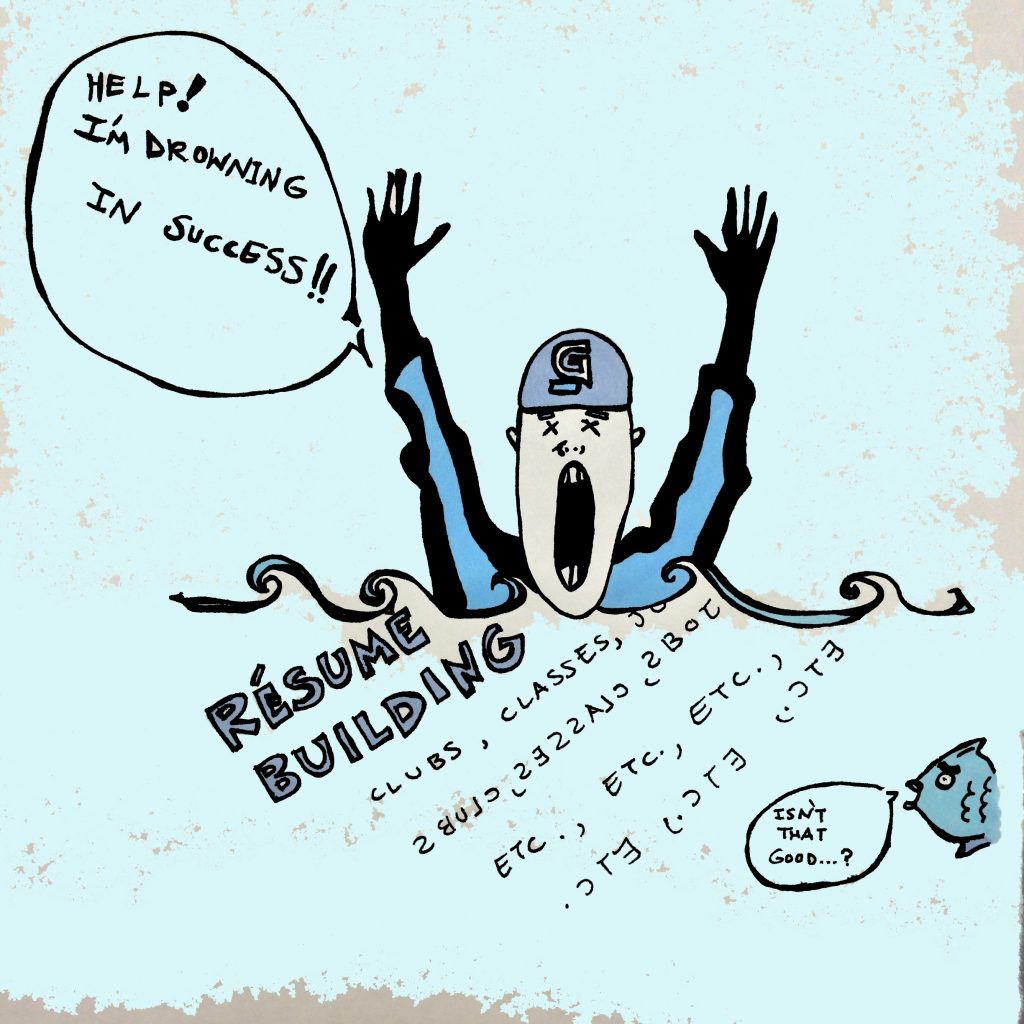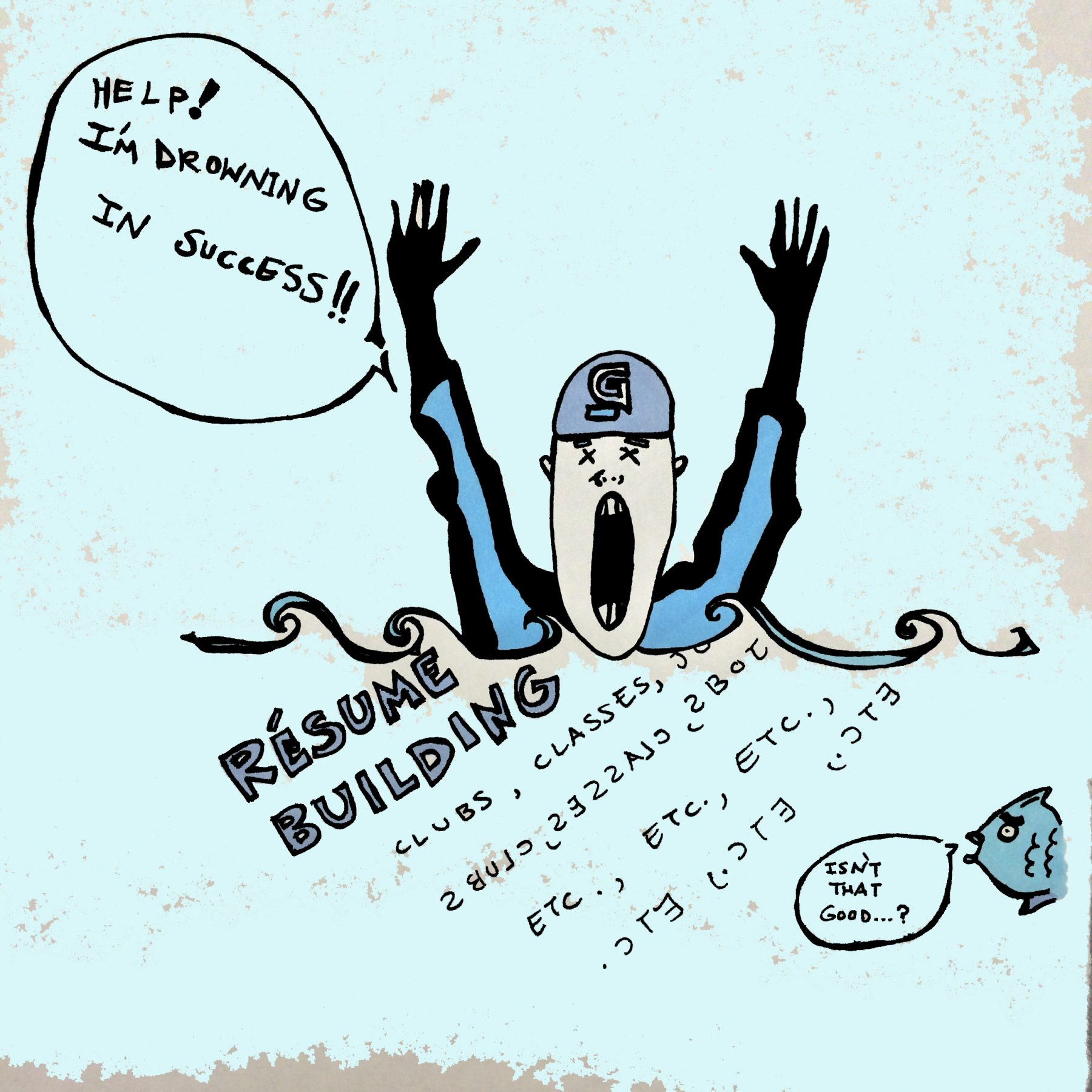Students at Georgetown so often hear their teachers and faculty expounding the merits of cura personalis or being a man or woman for others, but it is often hard to translate this spirit of care and concern once we leave the front gates. As many Hoyas currently find themselves drafting résumés or writing cover letters, they are subconsciously making an assessment of their own success and how to convey it to others. Society tells us that ambition and drive are the marks of successful people, but too often I have found myself reflecting on the content of my résumé rather than the content of my character. Thomas Merton, a Catholic mystic and author concerned with these very habits, wrote, “We are so obsessed with doing that we have no time and no imagination left for being.”
David Brooks, a columnist for the New York Times, underscores a dichotomy between resume virtues and eulogy virtues when he says: “external success is achieved through competition with others. But character is built during the confrontation with your own weakness.” I owe a great debt of gratitude to the retreats offered at Georgetown in this regard. Too often I find myself intensely focused on the next step or even the ultimate destination of my life and the plan to get there, but I forget to look down and pay attention to where I am and how I got here.


Sam Lee
When I was not willing to make the time necessary to confront this weakness, Georgetown Campus Ministry and their retreats provided the time and space necessary to simply stop for a weekend and think. Coming from a Jesuit high school I had always valued such experiences, but it was not until this past weekend that a retreat so perfectly responded to my exact place in life.
Known as the “Crossroads,” and grounded in Ignatian spirituality, this retreat helped me and nearly 40 other Georgetown students grapple with questions like, what brings me joy, and what does the world need me to do? Together with this newfound community I spent 24 hours contemplating where I had found true and lasting happiness over the course of my time here and where that might lead me going forward.
For me the toughest lesson was learning that there may not be one epiphany moment where I serendipitously discover the job or internship that connects all the dots and gives me the purpose that I have always craved. Instead I learned to trust in the process, continue to live each day as a loving friend, and by finding myself and my success in the remarkable people and experiences that bless each one of my days on the Hilltop.
A few weeks ago, I was sitting in a funeral home in Vevay, Indiana, a town of only 1,600, in order to celebrate the life of my great-aunt Louise. While Louise did not have a college degree or many of the things that motivate us on the Hilltop, the pastor at the service continued to reiterate that she was truly a great person. He went on to cite a passage from the Gospel of Luke, which says that the measure of greatness is our care for others. While Louise may not have attended a prestigious university or held a position on the board of a noteworthy student organization, she tirelessly served as a teacher’s aide for over 30 years and touched the lives of thousands of students in the process. That is a life well lived, and that is a model of greatness.


It was so easy, during freshman year to just experience college and engage in higher level discussions, but that changed quickly. Everything was new and exciting, and each class and experience became a lifelong memory. Upon further reflection I realized that during freshman year I made time for others, whereas during sophomore year I seemed to need more time for myself and my pursuit of new resume items. Freshman year has become a source of unprecedented nostalgia, while sophomore year seems to have simply “been.” What happiness can be derived from a shallow success when compared with the joy of a loving friendship?
Retreats are an unparalleled opportunity to step back for a few days with a community of friends and peers in order to wrestle with questions and engage in conversations that require more time than I am often willing to give during a normal week. Even though it is not practical or possible to go on a retreat every weekend, I can bring back the lessons I learned in order to become a more compassionate and present friend that is willing to work on myself and not just my resume. In times of great stress or doubt, I must always remain cognizant that success is not found in the accumulation of accolades, but rather in the moments when we can look inward and find peace with the person that we are and the people that we will become.






MLK would be so upset.